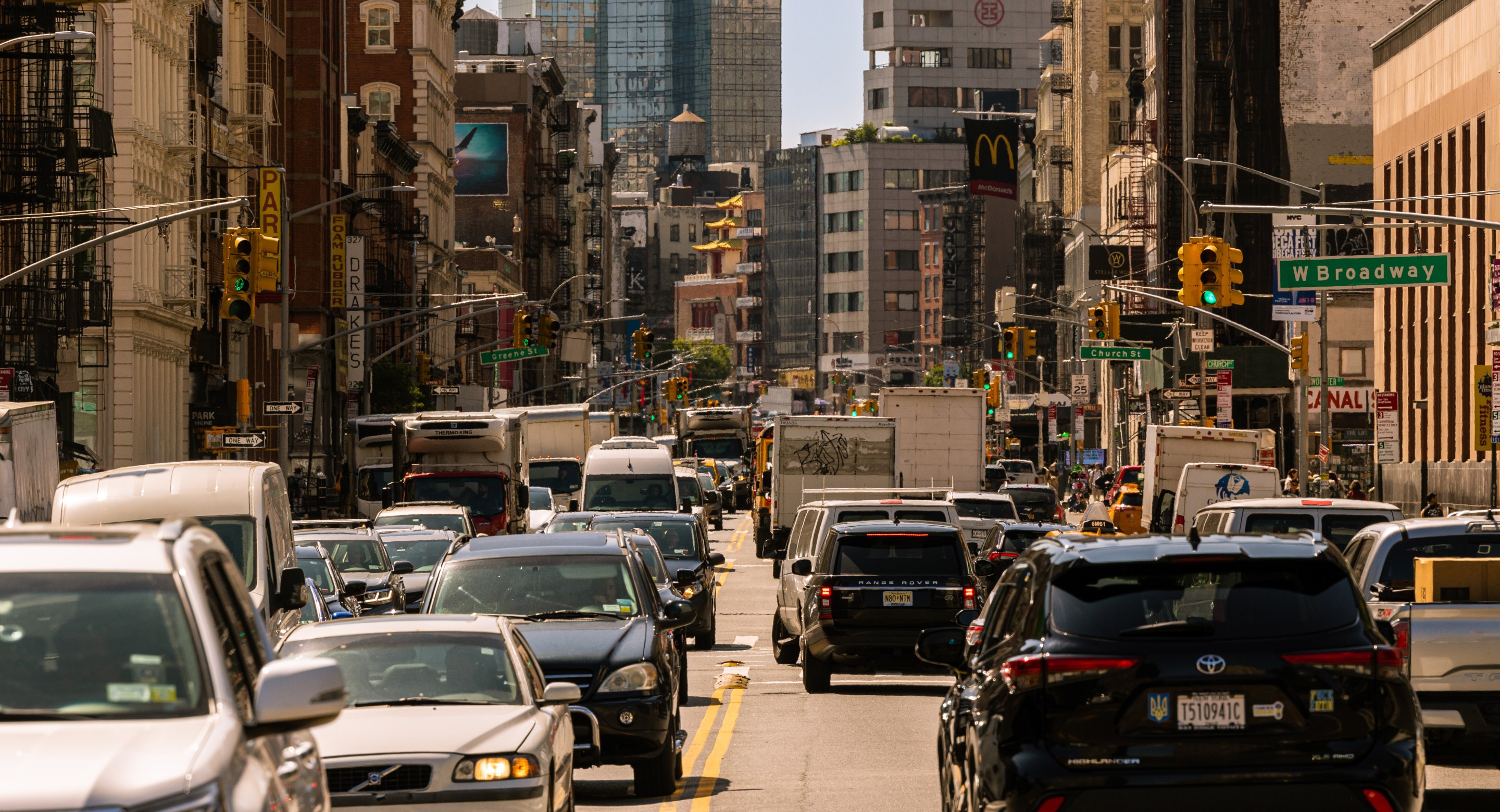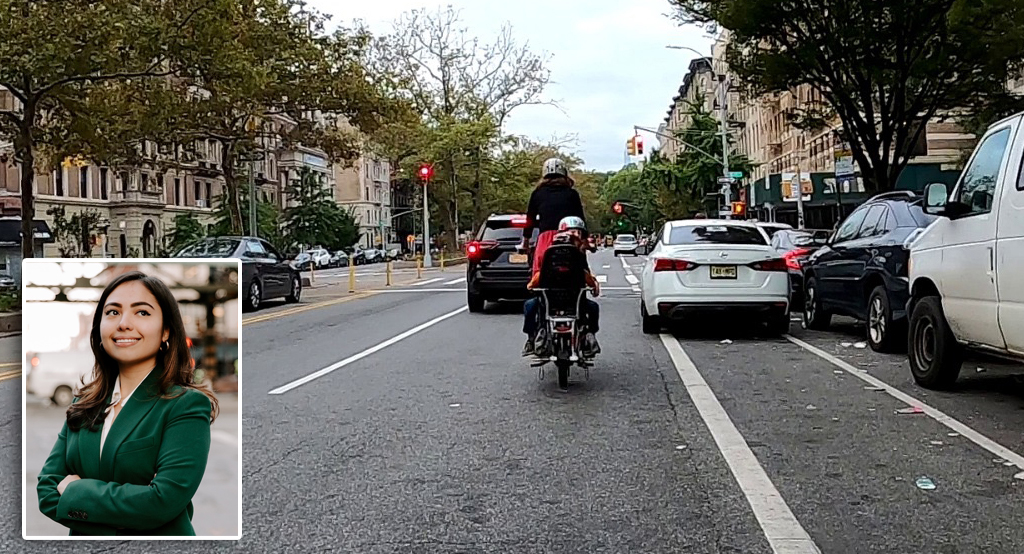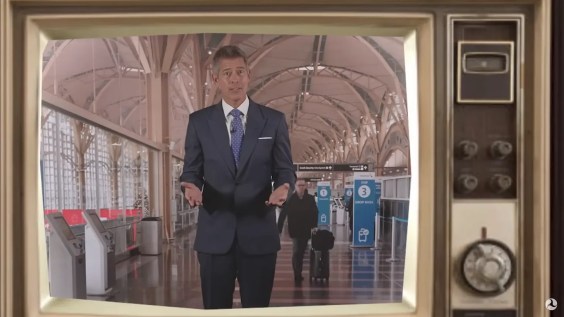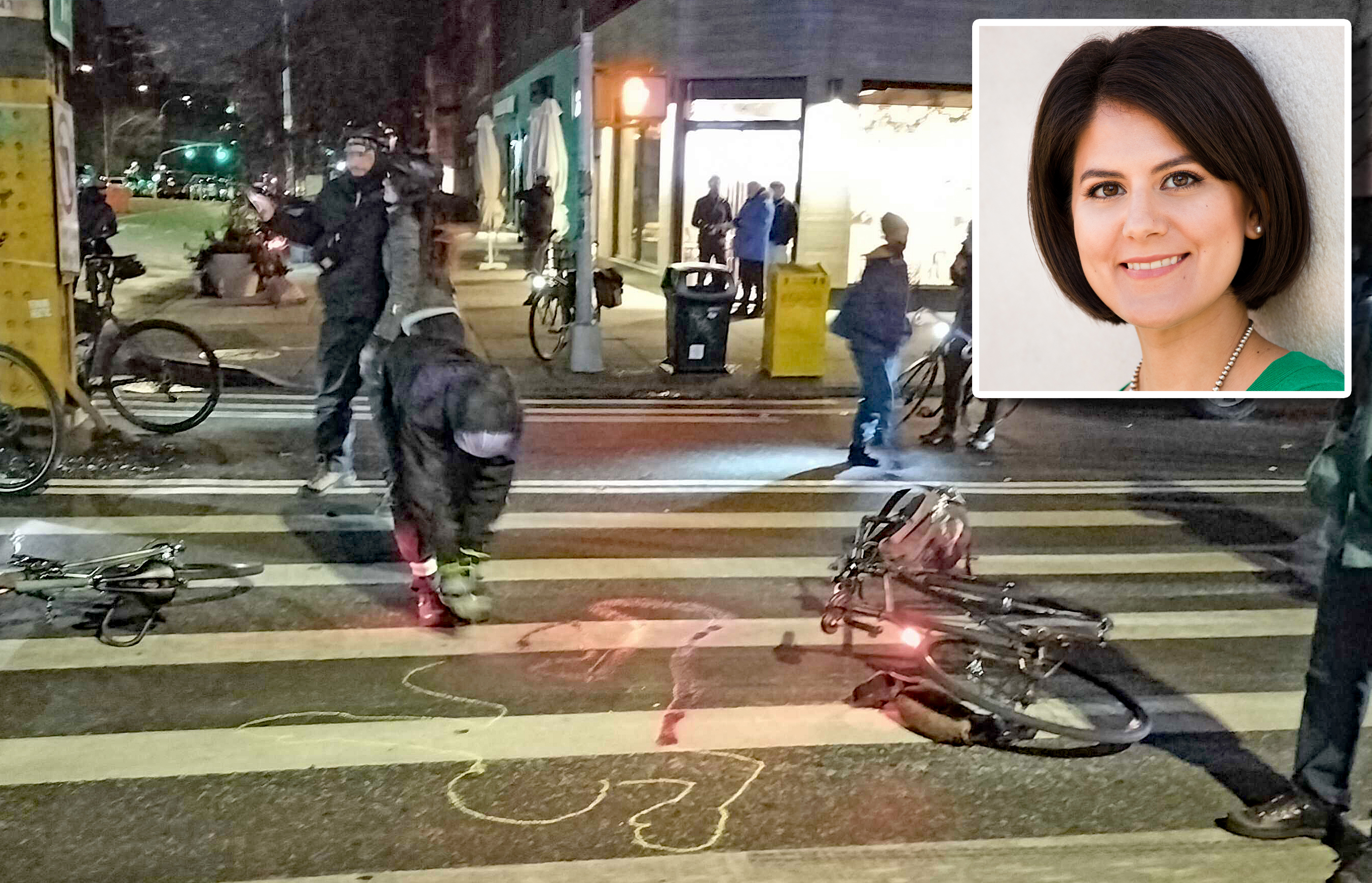A proposal to require New York to cut total miles traveled by one-fifth would obviously improve air quality and reduce fatal crashes — but a new report shows it will also save families thousands of dollars in vehicle costs and improve public health in a way that would save scores of billions of dollars.
State Sen. Andrew Gounardes, who represents the very western edge of Brooklyn, proposed the legislation last year to mandate a 20-percent reduction in vehicle miles traveled in the Empire State by 2050.
Enacting the law would eliminate 227 million metric tons of carbon emissions over 25 years, save households an average of $3,750 annually in gas and vehicle costs, and reduce the number of deaths each year by 4,940, according to a new Smarter Mobility Options for Decarbonization, Equity and Safety calculator unveiled this week by the Rocky Mountain Institute.
The latter figure includes 593 fewer fatalities from traffic-related crashes and 4,347 fewer deaths thanks to a switch to active transportation — the second-highest number of reductions in the United States, according to the data.
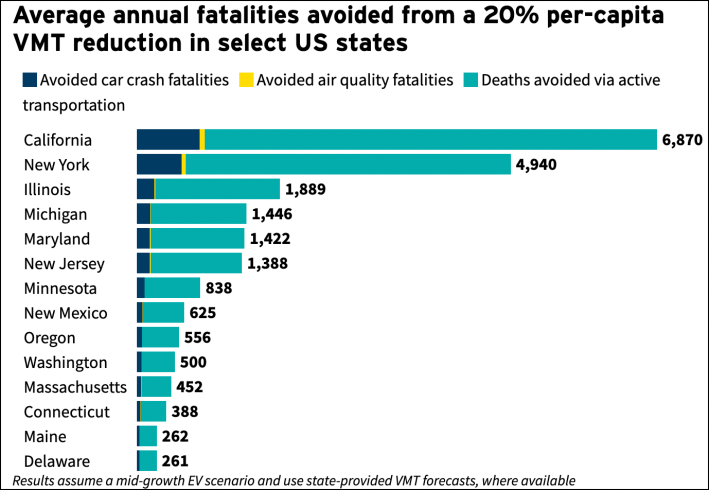
The international institute with offices in the Big Apple studied the potential impact of a 20-percent reduction in VMTs in each state by using its new computerized tool (methodology here) — which spit out an estimated 180,000 fewer fatal car crashes and contribute to the prevention of over 1.5 million deaths by 2050, or nearly 50,000 lives saved per year.
"The monetary costs of car crashes should not detract from their human toll. When cars and people compete for space, cars win," the Feb. 15 report said. "By moving drivers to safer buses and rail transit, and by creating safe, protected routes for cyclists and pedestrians, we lower the likelihood of these deadly collisions and empower Americans to try more active modes of transportation. The Smarter MODES Calculator ... estimat[es] not only the avoided costs of automobile ownership, but also avoided social costs."
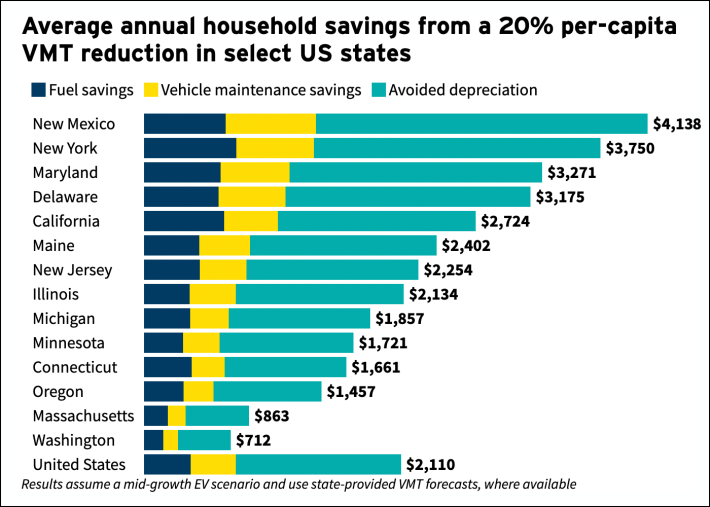
Gounardes's bill (S1981A) has the backing of New Yorkers for Transportation Equity. It's far from the country's first attempt to improve air quality and slash fatalities by eliminating the number of vehicle miles traveled across the state. Last year, Minnesota required its own Department of Transportation to cut VMTs by 20 percent — a decrease that the Rocky Mountain Institute found would save $91 billion.
In California, meanwhile, similar legislation that was signed into law back in 2013 finally went into effect several years go. Cities such as Santa Rosa and Berkeley have started using the new VMT standard, Streetsblog CAL has reported, but it is unclear if they have produced any data yet to determine its success.
No matter the total savings, any investment in alternative transportation options like cycling and buses rather than pollution-promoting highways is a win, Gounardes said.
"As this data makes clear, a new approach will not only protect our climate, but also make New York a safer, more affordable place to live."
